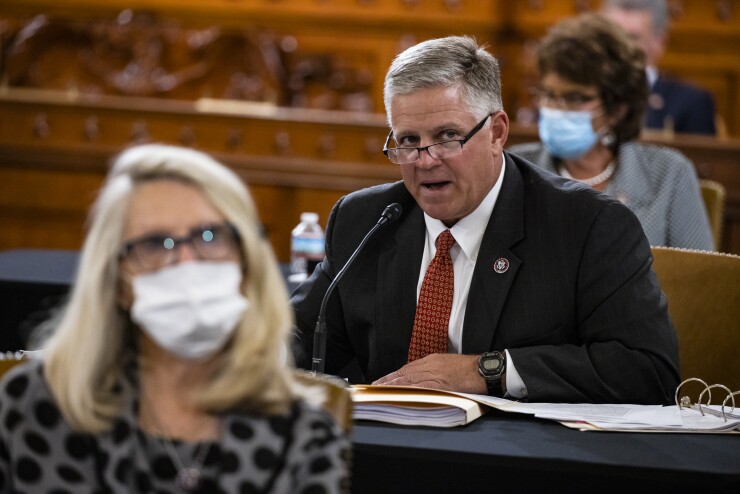House Democrats and Republicans jousted with each other at a Social Security hearing on Tuesday, with their expert witnesses caught in the middle.
The debate took place at a meeting of the
"As we will hear today, the longer the wait, the harder it's going to be to solve," said Rep. Drew Ferguson, a Republican representative of Georgia and the subcommittee's chair. "It's clear that Social Security's cost growth is unsustainable."
To clarify that problem and weigh in on potential solutions, the subcommittee questioned three witnesses: Stephen Goss, chief actuary of the Social Security Administration; Phillip Swagel, director of the Congressional Budget Office; and Barry Huston, a social policy analyst for the Congressional Research Service.
But those witnesses frequently found their testimony drowned out by the lawmakers, whose questions repeatedly turned into speeches.
"President Biden's recent budget does nothing to address the pending exhaustion of the trust fund, and to make matters worse, the cumulative effect is it actually hurts Social Security's funding stream by billions of dollars over the next decade," Ferguson said in his opening statement.
Democrats soon got the chance to fire back. In a question to Swagel — which he did not get a chance to answer — Rep. John Larson of Connecticut accused Republicans of claiming Social Security contributes to the national deficit and debt.
"That is total BS!" Larson shouted.
READ MORE:
Goss later confirmed that Social Security does not add to these fiscal shortfalls, because it is legally required to pay benefits only from its trust funds. Republicans at the hearing disputed this, repeatedly complaining that the program adds too much to the national debt — a concern that many, including financial advisors, consider
Meanwhile, Democrats brought up a solution that has gained attention in recent years. Under the current system, only a certain amount of one's income is subject to taxation for Social Security — in 2024, that amount is $168,600. So this year, Elon Musk and Jeff Bezos will pay exactly the same Social Security taxes as a podiatrist earning $168,600.
Democrats at the hearing urged Congress to get rid of this limit. This proposal, which has also been championed by Senator Bernie Sanders, has been
READ MORE:
"We have a system right now where a professional baseball player who earns millions of dollars in a season hits their Social Security cap at their first at-bat … and for the rest of the season does not pay into the Social Security trust fund," said Rep. Linda Sanchez of California. "I think if we could balance that out to make it a little bit fairer for everybody, we would find some revenue to extend the livelihood of the Social Security trust fund."
Republicans showed little interest in this idea.
"As a Braves fan, we would support that all coming out of the Nationals' payroll," Ferguson quipped.






